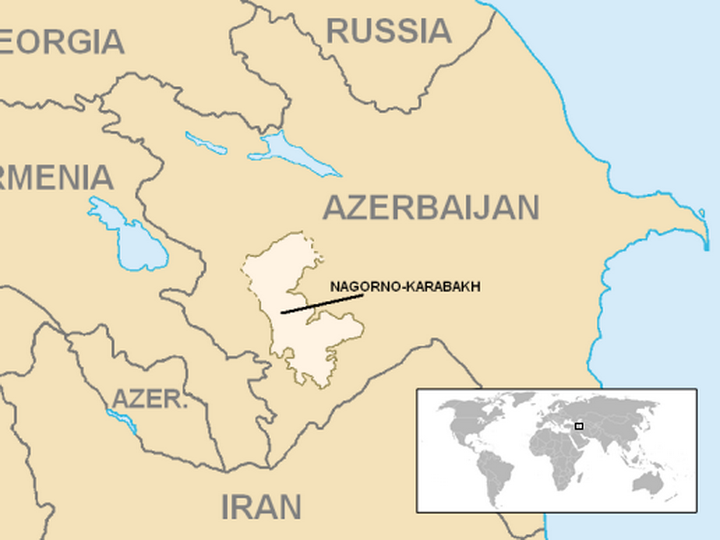What Were US Legislators Doing Paying an Illegal Visit to Nagorno-Karabakh?

BY NEIL RICHARDS
Early this past fall, three members of the US House of Representatives made a quick visit to a post-Soviet separatist territory of Nagorno-Karabakh.
You may have never heard of it. It is occupied by Armenia with Russia’s backing. And while it is not recognized by any nation in the world, including Armenia, it has, quite naturally developed, relations with other Russia-occupied regions like Abkhazia, South Ossetia, Transnistria and Crimea. Of course, all these territories are taken from pro-Western emerging nations in order to pressure them back into Russia’s orbit.
Nagorno-Karabakh, the breakaway province of Azerbaijan which has been stuck in limbo — a so-called frozen conflict — since just after the collapse of the Soviet Union. The three American lawmakers, Frank Pallone (D-New Jersey), David Valadao (R-CA), and Tulsi Gabbard (D-Hawaii), were on a “fact-finding” trip to Armenia when they decided to take a side trip to Khankendi/Stepanakert, the territory’s self-declared capital. They have since been declared personnae non gratae by Azeri authorities.
Officially, the US and other members of the United Nations recognize Nagorno-Karabakh to be part of Azerbaijan. Over the years since the enclave’s secession and a subsequent war with Baku, an array of international organizations, including NATO, the Parliamentary Assembly of the Council of Europe, and the UN itself have condemned the province’s leadership and the violence generated by its paramilitary forces. In April this year, that violence erupted again, despite a ceasefire negotiated under mediation by the OSCE Minsk Group, which includes the US, Russia and France. The lawmakers’ visit was described by an Azerbaijani foreign ministry spokesman as a “provocation aimed at undermining” the Minsk Group process.
It is noteworthy here that Pallone, Valadao and Gabbard are all members of the U.S. Congressional Armenian Caucus, a Capitol Hill group which gives voice to the wishes of the Armenian National Committee of America (ANCA), one of the most influential ethnic lobbies in the US.
“One of the goals of our work is to contribute to the activity of the OSCE Minsk Group, and we believe that the people of Artsakh should have the right to self-determination and have security mechanisms,” Rep. Pallone was quoted as telling a local news agency.
The “right of self-determination” is a phrase taken from ANCA’s own press materials. Employing comparisons with America’s own independence from Britain, ANCA spokesmen frequently call on US policy-makers to support Nagorno-Karabakh’s occupation. “…Nagorno Karabakh’s independence, like our own, represents the victory of democratic self-determination over foreign tyranny and aggression. We rightfully celebrate and support this great triumph of the human spirit,” Executive Director Aram Hamparian said in 2014. Ironically, one of America’s most consequential leaders, President Abraham Lincoln, would have strongly disagreed as he himself led a bloody war against secessionist movement in the South. Similarly, European leaders and those in the post-Soviet space are increasingly concerned that the abuse of “self-determination” rhetoric leads to conflicts, displacement and loss of civilians lives.
But independence is not what Nagorno-Karabakh’s secessionist leadership actually wants. They want to be part of Armenia. And the Republic of Armenia is a Russian dependency, its military supplied and trained by Russia and its economy heavily reliant on Russian funding.
Think about it. Is Nagorno-Karabakh — any more than Abkhazia, South Ossetia and Transnistria, or, more recently, the breakaway Ukrainian provinces of Donetsk and Lugansk — really choosing “self-determination over foreign tyranny”? Or are all these frozen conflicts a direct consequence of Russian efforts to restore its old empire?
And yet, astonishingly, three American legislators decided to offend Azerbaijan, a US military ally and vital trans-shipment point for troops and materiel for US operations in Afghanistan, for a bit of casual sight-seeing at the behest of Russian ally Armenia.














